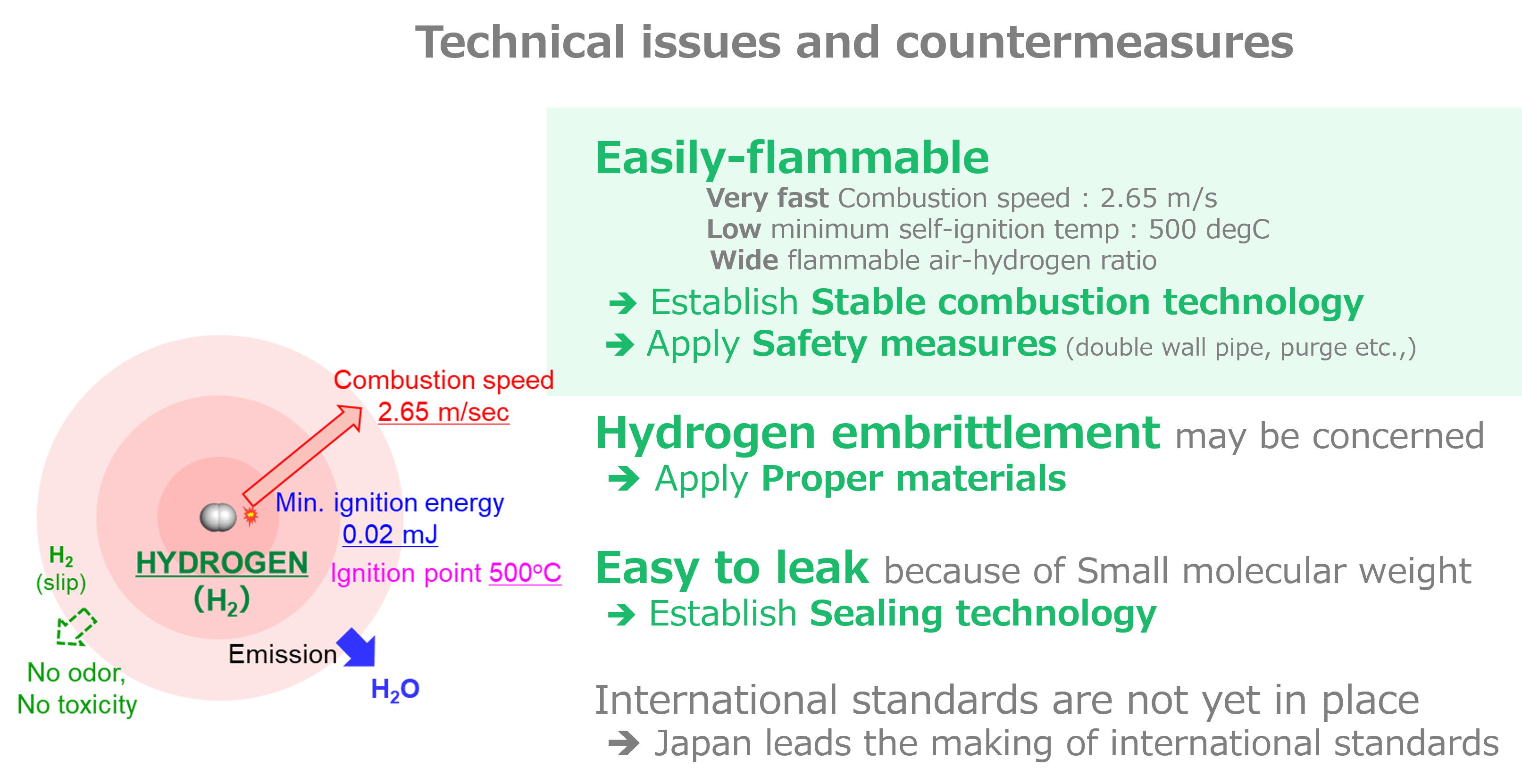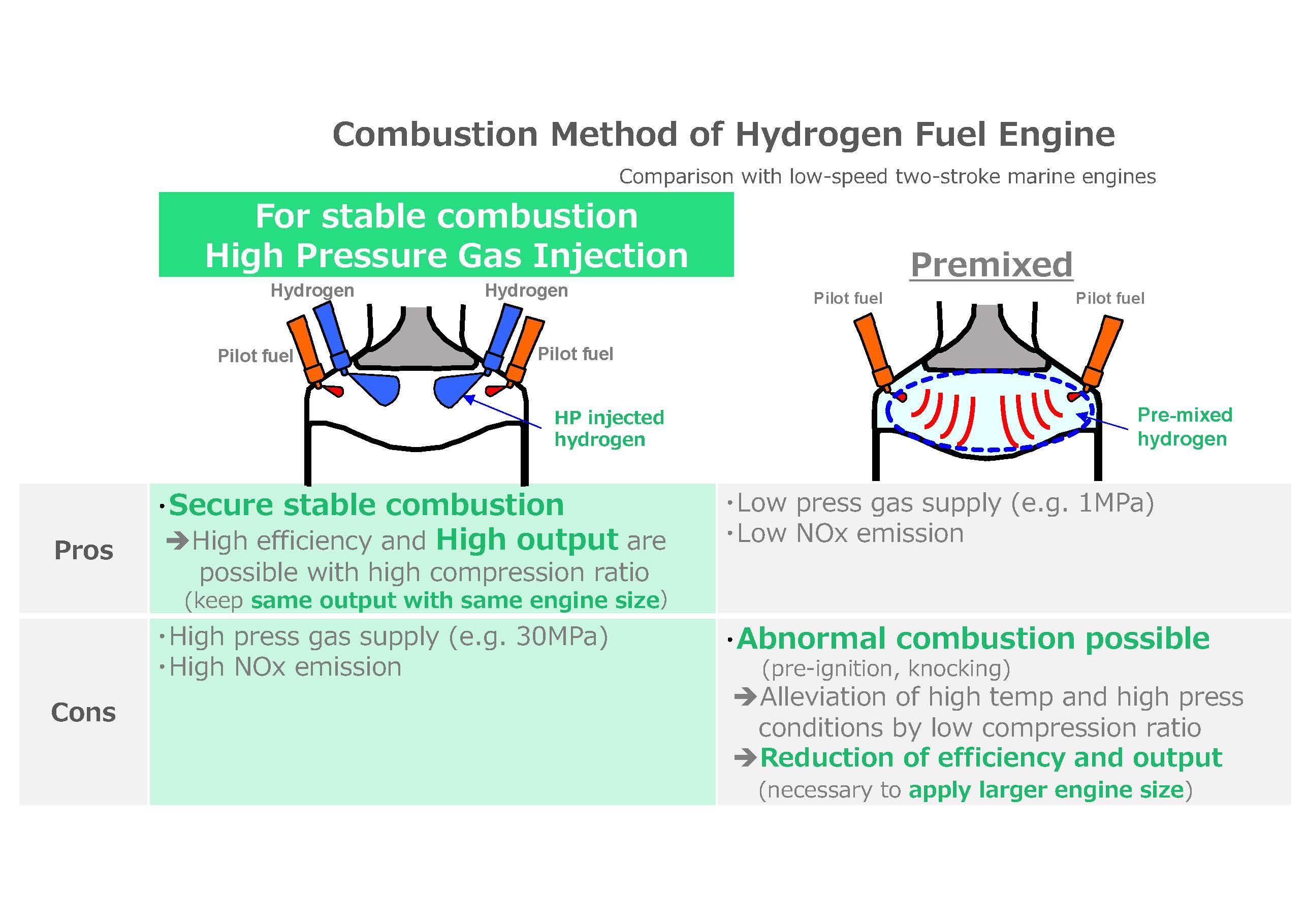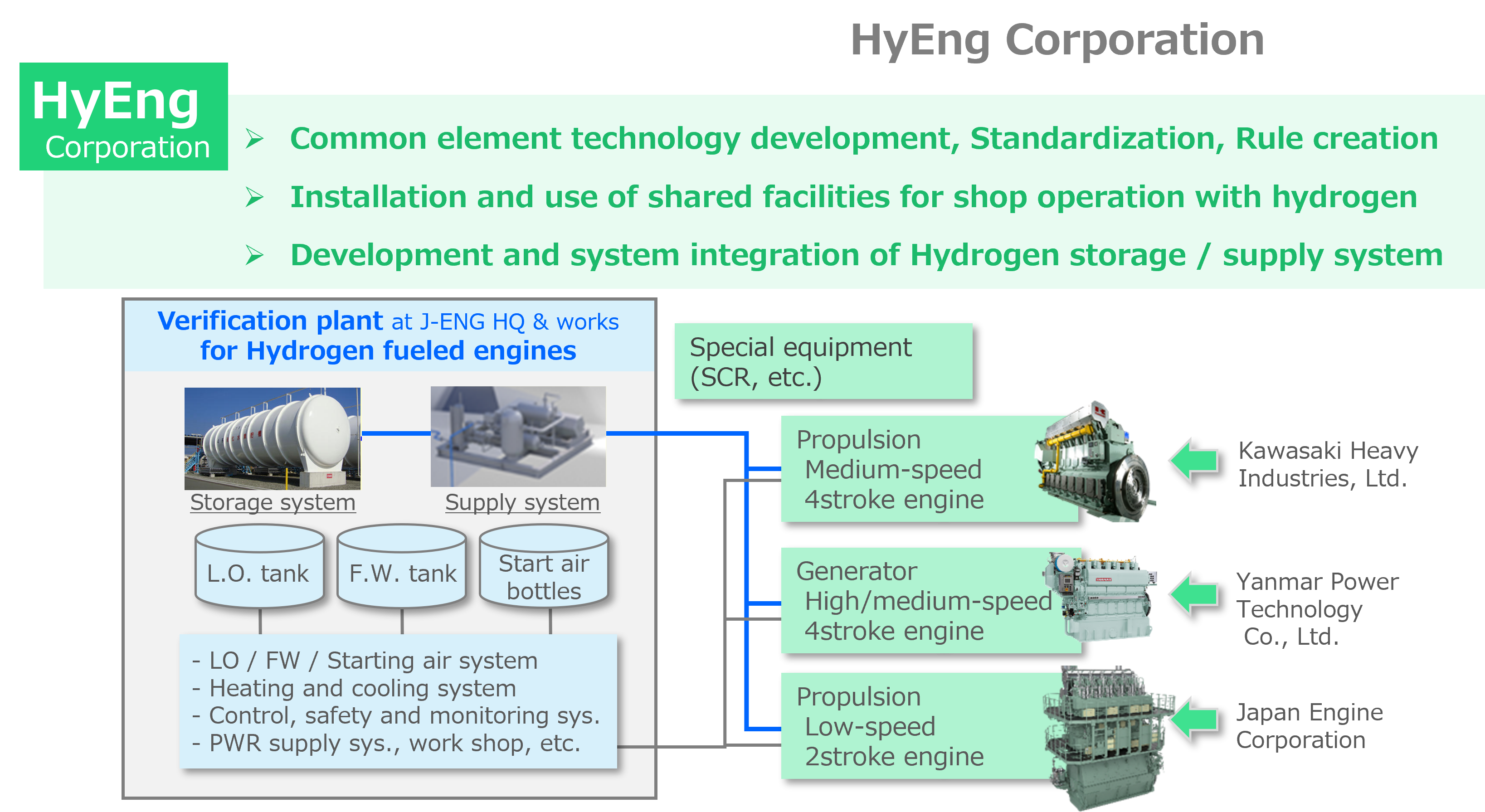Ammonia-fueled engine, Hydrogen-fueled engine
International Maritime Organization (IMO) adopted "GHG reduction strategy“ in 2018, in which declared that the international ships should reduce GHG to zero as soon as possible in this century by reducing the total annual GHG emissions by at least 50% by 2050 compared to 2008, and improving the average transport efficiency at least 40% by 2030. And the 77th Marine Environment Protection Committee (MEPC), held in November 2021, updated this strategy by accelerating their efforts and setting a challenging goal.
To promote substitution from conventional fossil fuels to low-carbon/carbon free fuels in international shipping to achieve the above GHG reduction goal, some alternative fuels such as LNG, LPG and methanol have already been used instead of the conventional fuels.
These low-carbon fuels are promising as a bridge solution, however their reduction rate is expected around 20%. We, J-ENG, assume that carbon-free fuels should be used and have determined to develop engines fueled with ammonia and/or hydrogen.
Ammonia-fueled engine : UEC-LSJA
-
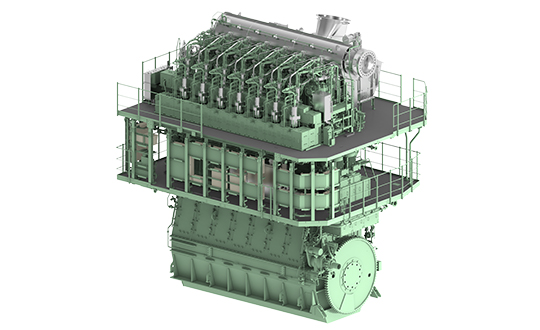
UEC50LSJA(Ammonia fueled engine)
-
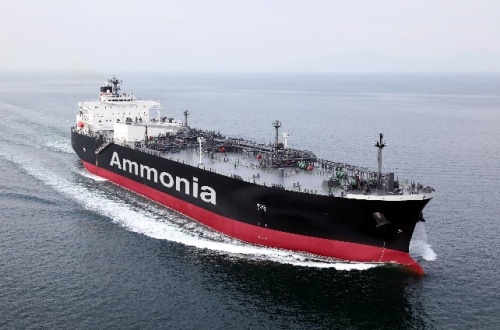
Ammonia-Fueled Ammonia Gas Carrier
The first fully-functional full-scale commercial engine 7UEC50LSJA-HPSCR (50 cm bore, 7 cylinders, with High Press. SCR) was accomplished in 2025.
Its high ignition temperature and poor combustibility make stable combustion difficult to achieve. To address this, we apply optimized combustion control technologies. Trial run data for this engine shows that at 100% load and a 95% ammonia co-firing rate, nitrous oxide (N₂O) emissions are approximately 3ppm, achieving a reduction of over 90% in greenhouse gas (GHG) emissions. Nitrogen oxide (NOx) emissions were confirmed to be approximately half those of heavy oil engines, with unburned ammonia emissions virtually zero (post-NOx SCR). It has also been confirmed that the thermal efficiency in ammonia fuel operation mode is equivalent to or higher than that in heavy oil operation mode.
▶Visit our press release:
1 September 2025
“The world's first complete commercial ammonia fueled engine has been accomplished “
Development status of ammonia-fueled engines
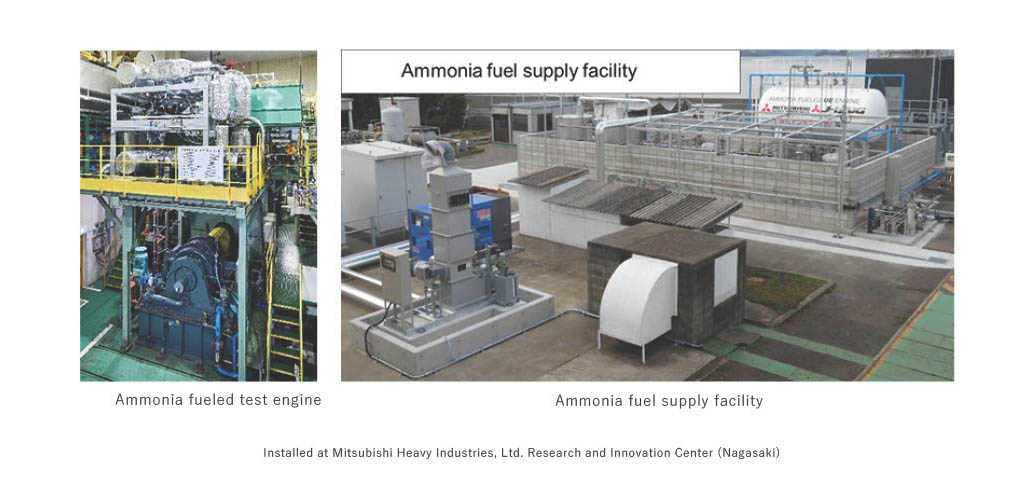
The development of the ammonia-fuel engine began with approximately 1,000 hours of test runs on a single-cylinder test engine at the Mitsubishi Heavy Industries Research & Development Center at Nagasaki between May 2023 and September 2024. Using the results and insights gained from the test, J-ENG manufactured the first full-scale commercial engine 7UEC50LSJA-HPSCR and began test runs on ammonia fuel in April 2025. Subsequently, over five months, the engine underwent meticulous testing in total 700 hours. This period focused on optimizing various performance aspects while concurrently confirming high reliability and safety features, including leak prevention and monitoring systems for toxic ammonia. The engine was thus completed, equipped with sufficient functionality to ensure the safe operation of actual vessels and the safety of crew members.
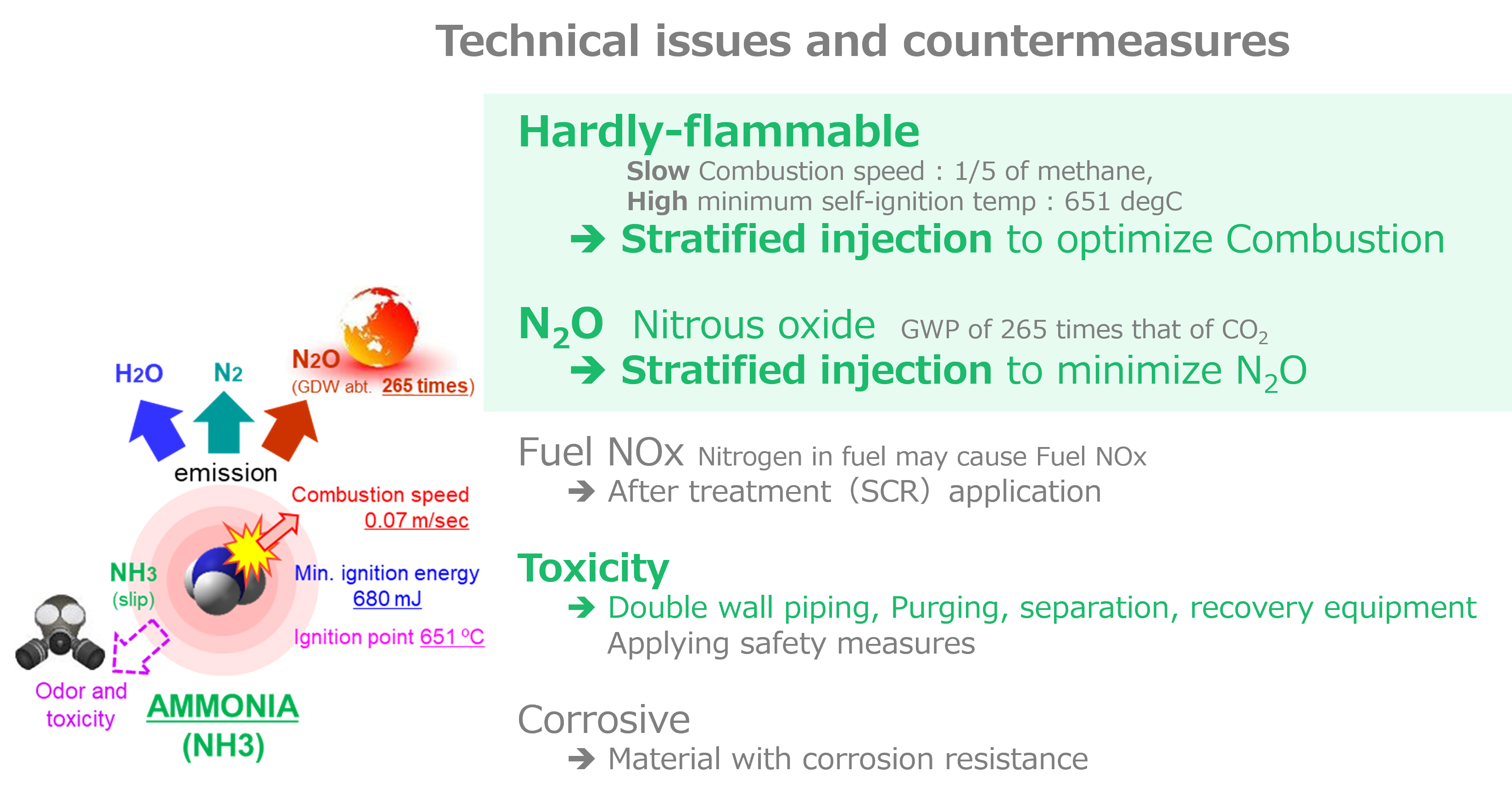
Hydrogen- fueled engine : UEC-LSGH
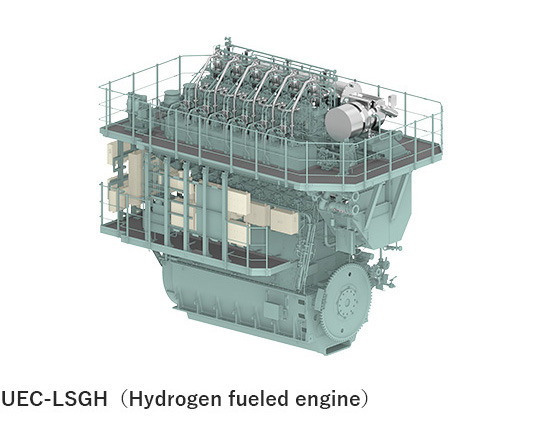
Hydrogen-fueled engine, UEC-LSGH, will be developed by applying technologies cultivated through the development of dual-fuel (DF) gas engine. The hardest technical challenge of hydrogen-fueled engine development is how to control its easy combustibility. High-pressure hydrogen injection into the combustion chamber can bring stable combustion to solve this issue.
The first hydrogen-fueled engine, UEC35LSGH developing with a bore of 35cm, is expected to complete in 2026.After development of the dual-fuel hydrogen-fueled engine, hydrogen single-fueled engine without pilot fuel will be developed. A joint investment company, HyENG, was already established with Kawasaki Heavy Industries Ltd. and Yanmer Power Technology Co., Ltd. in 2021 to promote the
hydrogen-fueled engine development as consortium partners. This development task is nominated as a NEDO’s Green Innovation fund.
▶Visit our press release:
9 November 2021
“MOL, MOL Drybulk, J-ENG sign agreement for trial of hydrogen-fueled engine equipped onboard“
19 October 2023
“Hydrogen-fueled Vessel Wins AiP Towards Demonstration Operation“
Development status of Hydrogen-Fueled Engines
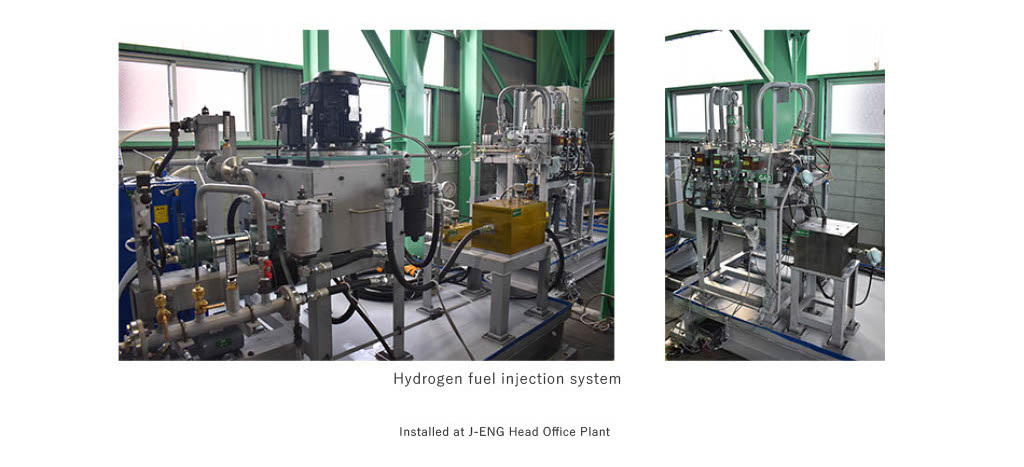
In order to establish hydrogen fuel injection technology, which is one of the key technologies for the development of hydrogen fuel engines, we manufactured and installed a hydrogen injection unit test device and started operation tests for it. In the future, we will utilize this device to verify design details such as the structure and specifications of hydrogen fuel injection equipment and accumulate basic data. After that, we will proceed with the development, design, and manufacture of a full-scale hydrogen-fueled engine, and in 2026, we will conduct a one-year actual machine verification operation, which is scheduled to be completed in March 2027.
